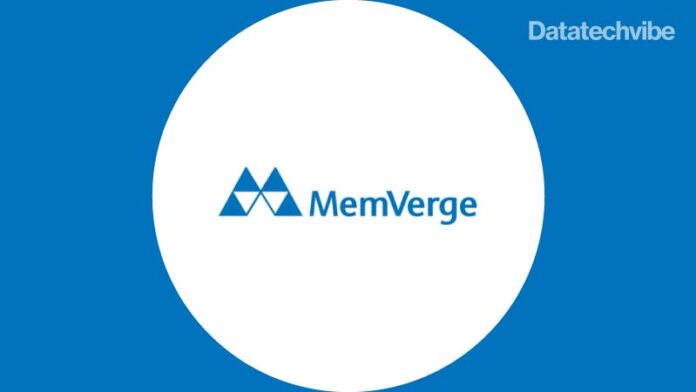MemVerge announced its Big Memory Cloud technology that brings Big Memory Computing to multi-cloud environments.
The cloud has fulfilled its promise of agility and flexibility for many applications, but thousands of non-fault-tolerant and long-running apps have been left behind, especially those with a lot of stateful data in memory.
For example, applications such as big data analytics, HPC simulations, genome sequencing and graphics rendering are not recommended for lower cost Spot compute instances; and bursting these apps quickly from on-prem to the cloud, or moving them from a cloud to another cloud, is prohibitively complicated and slow.
Enter Big Memory Cloud technology with fault-tolerance and mobility services that organizations can easily add to their cloud infrastructure. Stateful, non-fault-tolerant, and long-running apps can now realize the promise of cloud agility and flexibility. The first cloud service designed with the Big Memory Cloud architecture will be available in leading public clouds in Q1 2022.
“The world is going multi-cloud,” said Eric Burgener, research vice president, Infrastructure Systems, Platforms and Technologies Group at IDC. “Big Memory Cloud is an important enabling technology for stateful apps to not only survive but thrive in this multi-cloud world.”
Apps are headed to the cloud, but not all are designed for the cloud
Most traditional apps and an estimated 50 per cent of cloud-native apps are stateful. That means these apps depend on critical data that are either in memory or in persistent storage. When an interruption occurs, e.g., due to a hardware or software failure, the critical data is lost, and these apps are unable to recover gracefully.
Some apps lose valuable data, some lose progress and must start anew, and some have long downtime. In the cloud, their inability to handle interruptions means they are unable to take advantage of the following cloud benefits:
- Spot instances: Many organisations would love to on-ramp apps to the cloud beginning with low-cost Spot compute instances, which offer up to 90% savings, but can’t because these apps lack fault tolerance. Thousands of stateful, non-fault-tolerant, long-running apps are unable to recover from Spot terminations that occur on short notice.
- Cloud bursting: If an on-prem app is hit with a surge in traffic, organisations like to burst to the cloud. Unfortunately, cloud bursting is not easy for many apps. Big stateful apps must be interrupted for a long period of time and configuring cloud services is a complicated manual process.
- Multi-cloud mobility: Enterprises are increasingly embracing multi-cloud architecture, which prevents lock-in by any cloud service provider. But again, interruptions are lengthy and configuring cloud services is a complicated manual process.
Also Read: Race For Case
Introducing Big Memory Cloud Technology
Over the last four years, MemVerge has developed Big Memory Computing technology capable of encapsulating stateful apps including all of their memory state into AppCapsules. These AppCapsules can now be used in cloud fault-tolerance services to deliver instant recovery, and in-cloud mobility services for cloud bursting and cloud-to-cloud migrations.
These innovative new cloud services are delivered through MemVerge Memory Machineä Cloud Edition software. Once a workload is captured in a Memory Machine AppCapsule, it can be loaded, replicated, recovered, and transported at the speed of memory, and what was impossible becomes possible.
Long-running apps can be on-ramped to low-cost Spot instances without fear of unplanned instance terminations; apps can burst from on-prem to the cloud at the speed of memory; and big memory workloads can migrate seamlessly to another cloud with automated cloud service configuration.
How it Works
AppCapsules are constructed by capturing all application data necessary for restarting this app from that point-in-time, without modification to the application.
- Fault-tolerance and mobility services are integrated with cloud service schedulers and cloud-native app orchestration platforms.
- The fault-tolerance service can protect a running stateful application on any type of compute instance, including Spot instances.
- The mobility service can move a running, stateful application from any instance to any instance.
According to Charles Fan, CEO and co-founder, MemVerge, “We spent the last four and a half years developing a deep stack of software technology for memory virtualisation and in-memory data management. Big Memory Cloud technology is a natural progression of our technology to enable all cloud applications to be saved, moved and restored any place any time in multi-cloud environments.”









